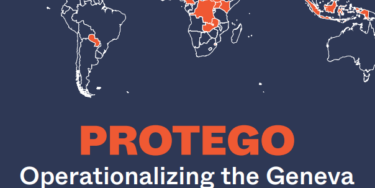This briefing paper demonstrates why governments must be held accountable for addressing child marriage in the region and discusses child marriage as a form of early and forced marriage.
Child marriage is a human rights crisis occurring on an alarming scale in South Asia. South Asia accounts for almost half of all child marriages that occur globally —the most of any region in the world. Child marriage, defined internationally as marriage where one or both spouses are under the age of 18, is legally prohibited under many national laws in the region as well as by international human rights treaties adopted by South Asian countries; however, the practice persists with impunity. In South Asia, 46% of women between ages 20-24 report having been married before age 18—in 2010, this translated to 24.4 million women in the region. Estimates project that from 2010 to 2030, 130 million more girls in the region will be married.
Governments in South Asia have an absolute legal obligation to eliminate child marriage. The extensive repercussions of child marriage violate the international and constitutional obligations of states to protect children’s rights and discriminatorily interfere with women’s and girls’ ability to enjoy a broad range of human rights. The persistence of child marriage in South Asia indicates the widespread failure of governments to address one of the most critical human rights issues facing women and girls in the region and the absence of state accountability for violations of their human rights and constitutional rights.
Child marriage does not constitute a single rights violation; rather, every instance of child marriage triggers a continuum of violations that continues throughout a girl’s life. Child marriage endangers the survival and well-being of women and girls by exposing them to forced initiation into sex and ongoing sexual violence, as well as to early, unplanned, and frequent pregnancies. Further, women and girls married as children are often denied educational opportunities, are isolated from society, and face a lifetime of economic dependence. Together, child marriage and early pregnancy trap generations of women in cycles of poverty. These harms result in significant violations of girls’ rights, including their reproductive rights and their right to freedom from gender-based violence. Ensuring accountability for child marriage entails both holding responsible those officials who have failed to implement laws and policies against the practice, and addressing legal and social barriers that prevent married girls seeking to leave such marriages from being able to do so. It also requires the introduction of specific legal measures and remedies to address the particular needs of married girls.
The single most important finding of this briefing paper is that by failing to enact and enforce laws that clearly and consistently prohibit child marriage, governments in the region are complicit in the grave violations of human and constitutional rights experienced by married girls. These governments are responsible for perpetuating legal and practical barriers that make girls vulnerable to child marriage and deny those trapped in such marriages effective legal remedies.
Download PDF

